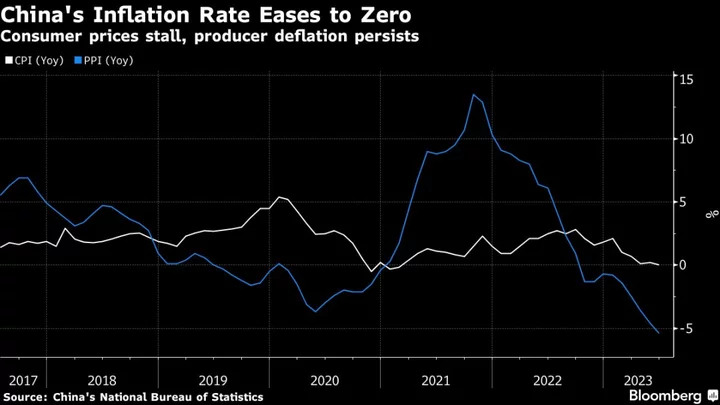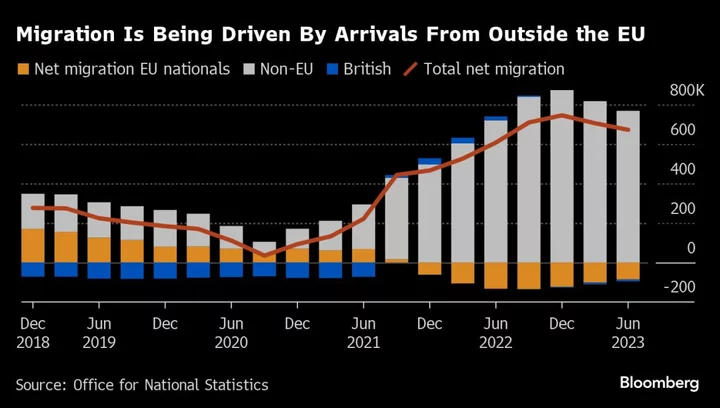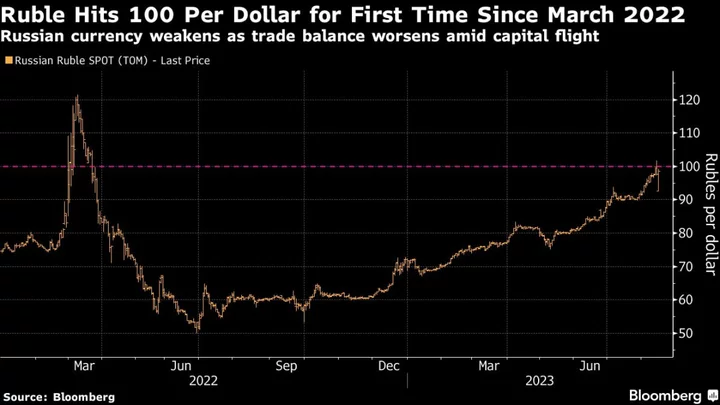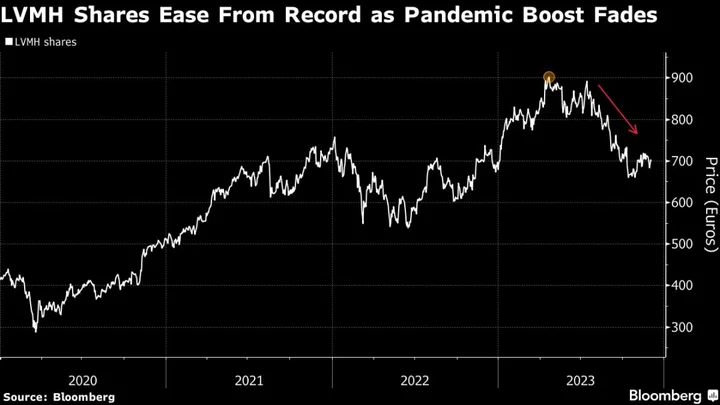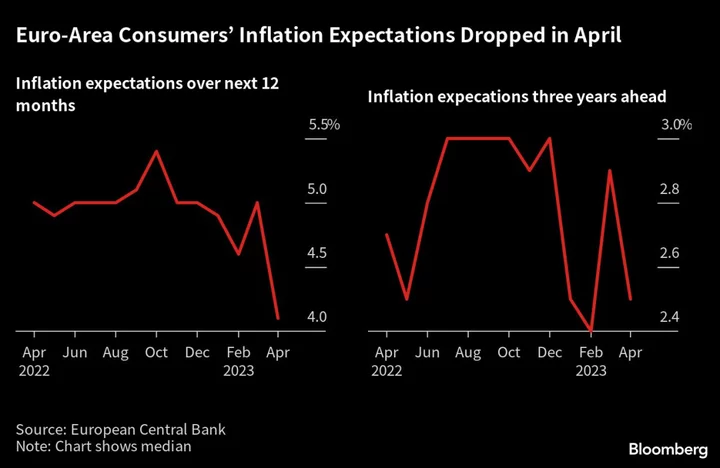China’s consumer inflation rate eased to zero in June while factory-gate prices fell further, underlining continued weakness in demand and adding to concerns about the threat of deflation in the economy.
The consumer price index was unchanged last month from a year earlier, the National Bureau of Statistics said Monday. That was lower than expectations of a 0.2% increase in a Bloomberg survey of economists, and compared to May’s reading of 0.2%.
Core inflation, which excludes volatile food and energy costs, slowed to 0.4% from 0.6%.
Producer prices fell 5.4% in June, compared with a 4.6% drop in the previous month. Economists had expected a 5% decline.
The inflation data adds to mounting evidence that the economic recovery is cooling.
Deflation concerns have risen in recent months, weighing on confidence. Producers have already had to contend with lower commodity prices and weak demand at home and abroad. If consumers and businesses continue to hold back from spending or investment in the hopes of prices getting lower, that could lead to a self-fulfilling price dropping spiral.
Despite more calls for Beijing to take action to support the economy, most measures so far have been limited in scope. The central bank cut a key policy interest rate last month by a small amount, and the government has extended tax breaks for buyers of electric cars.
Premier Li Qiang spoke last week with some Chinese economists about potential aid, though he emphasized that policies would be “targeted, comprehensive and well-coordinated” — reinforcing expectations that stimulus would not be massive in size. One limiting factor: The high debt burden held by local governments, which have traditionally been responsible for driving growth via more spending.
--With assistance from Yujing Liu.

